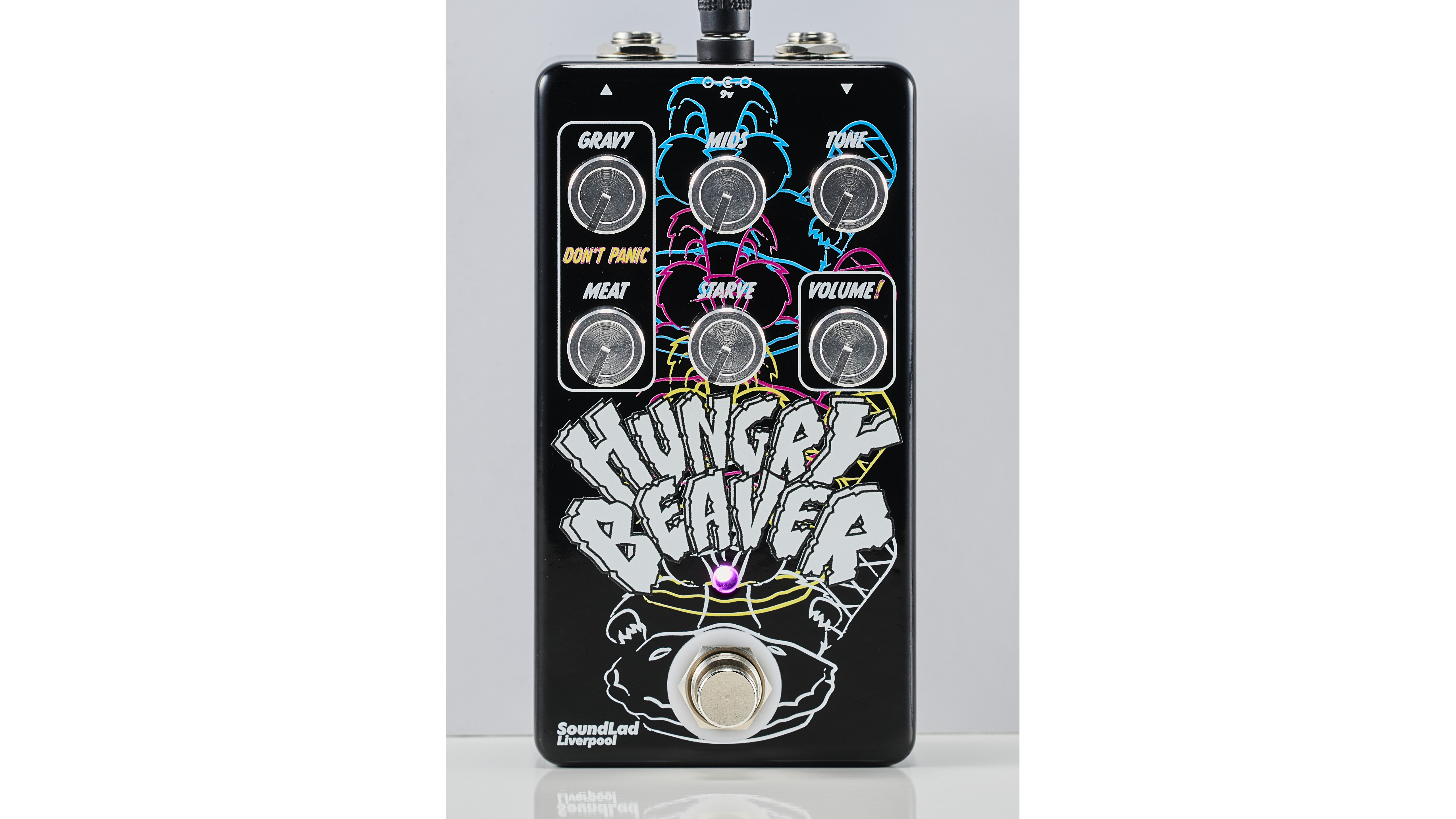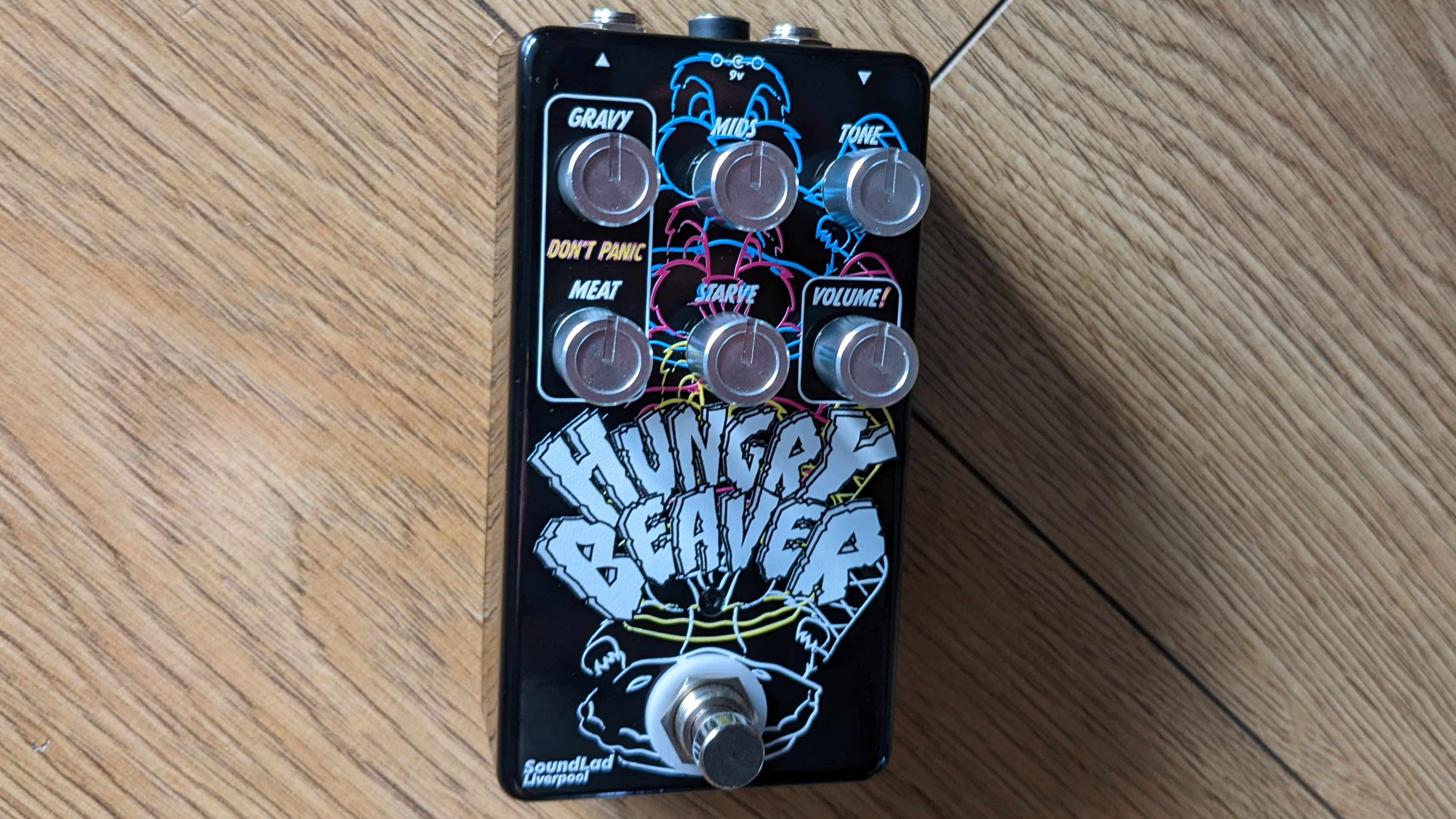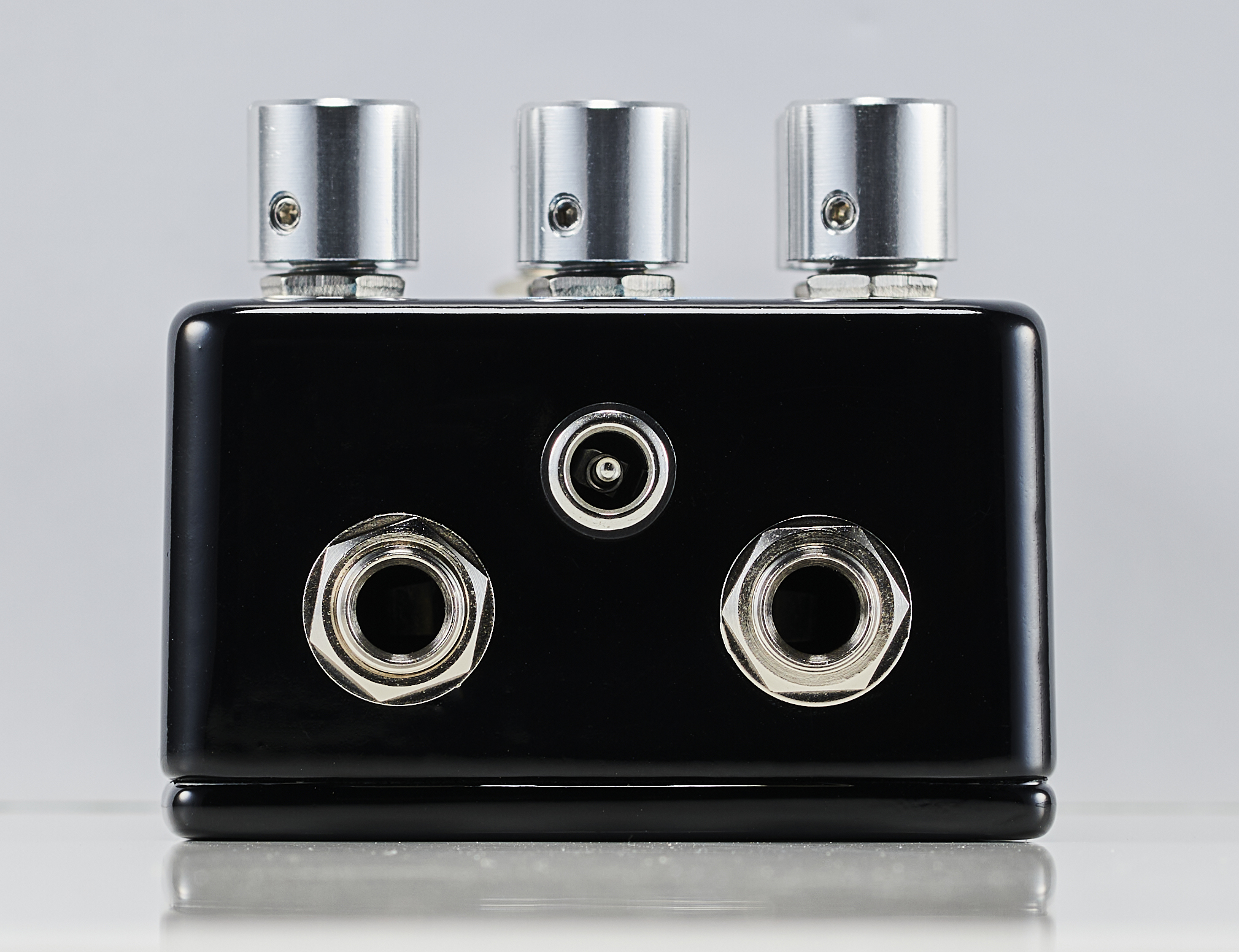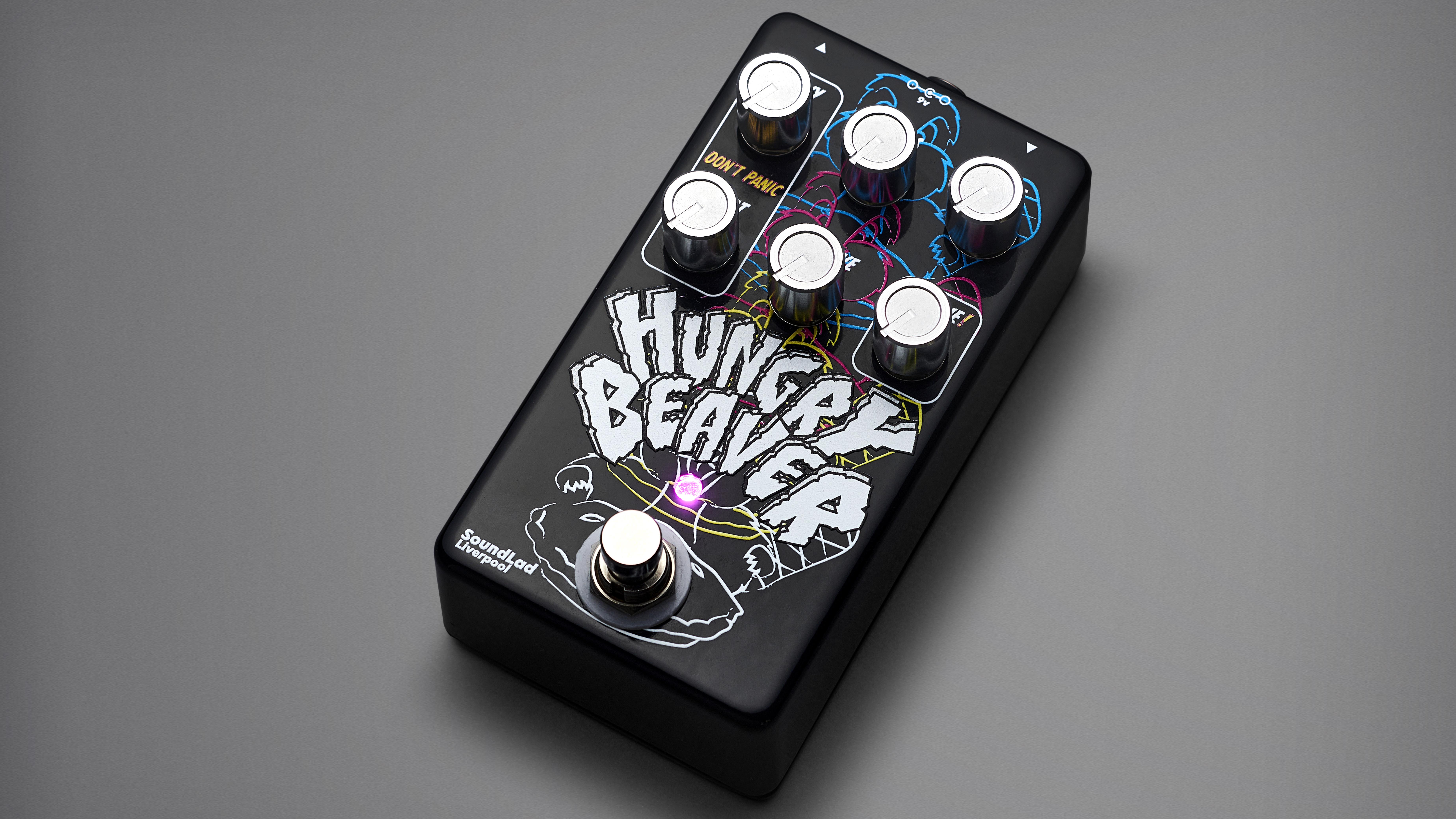MusicRadar Verdict
A fuzz fiend's feast with a healthy side dish of boost. This Beaver is a dam good deal.
Pros
- +
Versatile with a very wide EQ sweep
- +
Muff-style fuzz and more with plenty of headroom.
- +
A very fair price for a hand-built UK pedal.
Cons
- -
Steep-ish learning curve at first but it rewards you for it.
MusicRadar's got your back
SoundLad Liverpool Hungry Beaver Voltage Starved Power Fuzz / Boost pedal: What is it?
It says a lot about the people behind the effects pedal community to see how mutually supportive it is. From JHS Effects going out of its way to showcase the work of other builders on their YouTube channel to the simple sharing of expertise, it's heartwarming to see in the sometimes litigious world of electric guitar.
A case in point is SoundLad Liverpool's Marc Dunn, who was one of the key people who helped Andrew Ilgunas of Funny Little Boxes realise his dream of building a pedal with the successful 1991 overdrive. Marc's already had his own hand-built designs on the market and now it's time to put the focus on his fuzz pedal here.
We note the cheeky name, but the Hungry Beaver isn't a mere Big Muff clone, more a Muff-influenced design that's been pulled through a voltage starved boostable twilight zone. There's a lot going on here, and we find this Beaver's idiosyncratic controls are the key to getting a handle on the character of the animal within.
It's to Marc's credit that when the cost of his components went up – something we're hearing across the industry lately – he hasn't passed that on to customers. The Beaver knobs he used went up in price so he's offering machined aluminium alternatives with the pedal at the previous £99 price, with the option to pay £20 extra for the original version.
These aluminium alternatives look fine and dandy to us on the six-knob layout on black with a very natty looking colour choice for the design. And with pot names like Gravy, Meat and Starve, our tummies are rumbling and our tone snouts are twitching. So we better get stuck in.
SoundLad Liverpool Hungry Beaver Voltage Starved Power Fuzz / Boost pedal: Performance and verdict

By Marc's own admission the Hungry Beaver has been designed to 'slam the front end of an amp harder than you could ever think possible'. And it will certainly slam alright, but it's also not a quick and easy pedal to dial in at first because it's got a unique set of controls. Bear / beaver with us as we explain with Marc's help…
Want all the hottest music and gear news, reviews, deals, features and more, direct to your inbox? Sign up here.
Meat and Gravy are stacked gain controls that reflect different sides of the Muff legacy and Marc explains their territories thusly; 'Meat is thick and chunky like a modern Russian/New York sound whereas Gravy is less so with more mids, like a classic '70s Purple Ram sound.'
We'll attest to those findings too, and you can bring in one gain and keep the other minimised or mix as you wish. The Tone control then adjusts the treble and bass frequencies while shifting the mid scoop while the Mids control adjusts the depth or very existence of that scoop. But then things get really interesting…
The Starve control affects the Meat and Gravy roles when it's dialled in. As the name states, it 'starves' parts of the circuit of voltage and current for splatty, synthy and just plain nasty fuzz. But it can also tastefully tame the gain. It's a sensitive control and when you starve the Beaver, the Meat control adjusts the fuzz level and the Gravy controls the sustain level. You'll soon get used to it as we did.
There's plenty of scope going on here for sure. But there's also the Volume, or should we say boost. Because it's over 30dB of boost when cranked. Ideally, you need to use the gain control on your amp to balance your clean sound with the pedal as and if required.
Start with the amp on the edge of breakup, and the pedal Volume on zero, then start increasing the latter from there. The extra oomph with the excellent EQ sweep can also be very handy for laughing in the face of those who may suggest your Beaver will drown in a band mix. A common criticism of Big Muffs and indeed fuzz pedals in general.
This thing can sound monstrous and massive, reminding us that fuzz can be a joyous weapon of sonic destruction
You can have a lot of fun cooking up huge slabs of monolithic fuzz with the Gravy and Meat… this thing can sound monstrous and massive, reminding us that fuzz can be a joyous weapon of sonic destruction. Billy Corgan fans will certainly rejoice. But when you want to head back to a vintage era that Starve control can help reign the Beaver in, as well as tickle it, depending on the settings elsewhere.

It feels like with time and a decent ear you can go to any fuzzy destination you choose on the back of this Beaver
Setting Starve at midday and moving clockwise we start to dial in a Keef Maestro-esque Satisfaction tone, keeping in mind that those Gravy and Meat controls need to be treated differently in this scenario.
The Mids and Tone pots give us a huge scope for Floyd, Hendrix, Sabbath, Muse… see the videos we've gathered from various players here for audible evidence. It feels like with time and a decent ear you can go to any fuzzy destination you choose on the back of this Beaver.
The more time we spend with the Hungry Beaver, the more our appetite for it grows
We've got to hand it to Marc, he's packed a hell of a lot in for £99 here. The more time we spend with the Hungry Beaver, the more our appetite for it grows. And this pedal deserves your time, because the scope here may even win some fuzz cynics around. It's certainly a great way to have a heap of fuzz options in a single box at a very appealing price.
MusicRadar verdict: A fuzz fiend's feast with a healthy side dish of boost. This Beaver is a dam good deal.
Buy the Hungry Beaver direct from SoundLad Liverpool
SoundLad Liverpool Hungry Beaver Voltage Starved Power Fuzz / Boost pedal: Hands-on demos
Let's Play All
Kobi Pham
MarcusDluxe
SoundLad Liverpool
SoundLad Liverpool Hungry Beaver Voltage Starved Power Fuzz / Boost pedal: Specifications

- TYPE: Fuzz pedal with boost
- CONTROLS: Gravy, Meat, Mids, Tone, Starve, Volume
- SOCKETS: Input, output, power
- TRUE BYPASS: Yes
- POWER: 9v PSU 4mA
- CONTACT: SoundLad Liverpool

Rob is the Reviews Editor for GuitarWorld.com and MusicRadar guitars, so spends most of his waking hours (and beyond) thinking about and trying the latest gear while making sure our reviews team is giving you thorough and honest tests of it. He's worked for guitar mags and sites as a writer and editor for nearly 20 years but still winces at the thought of restringing anything with a Floyd Rose.
